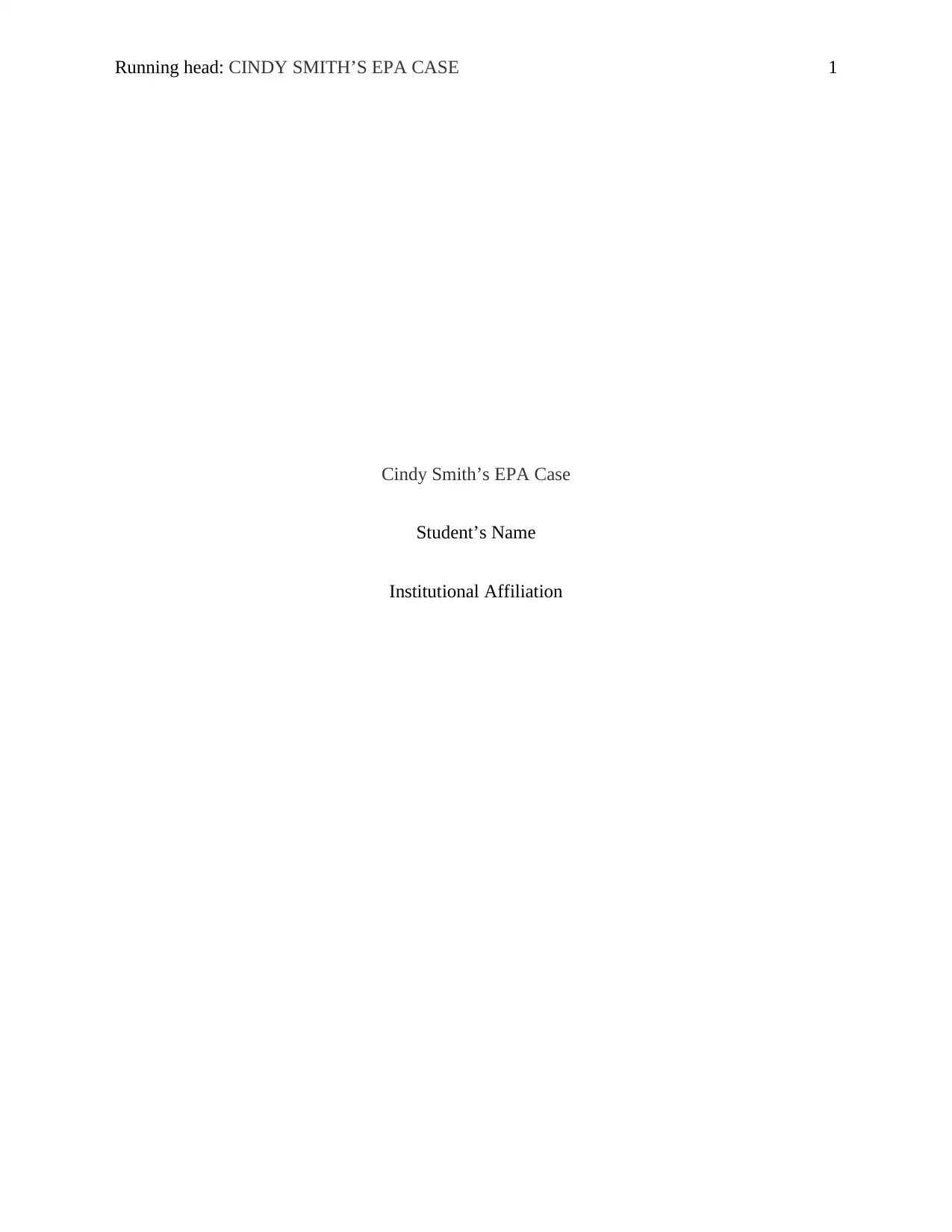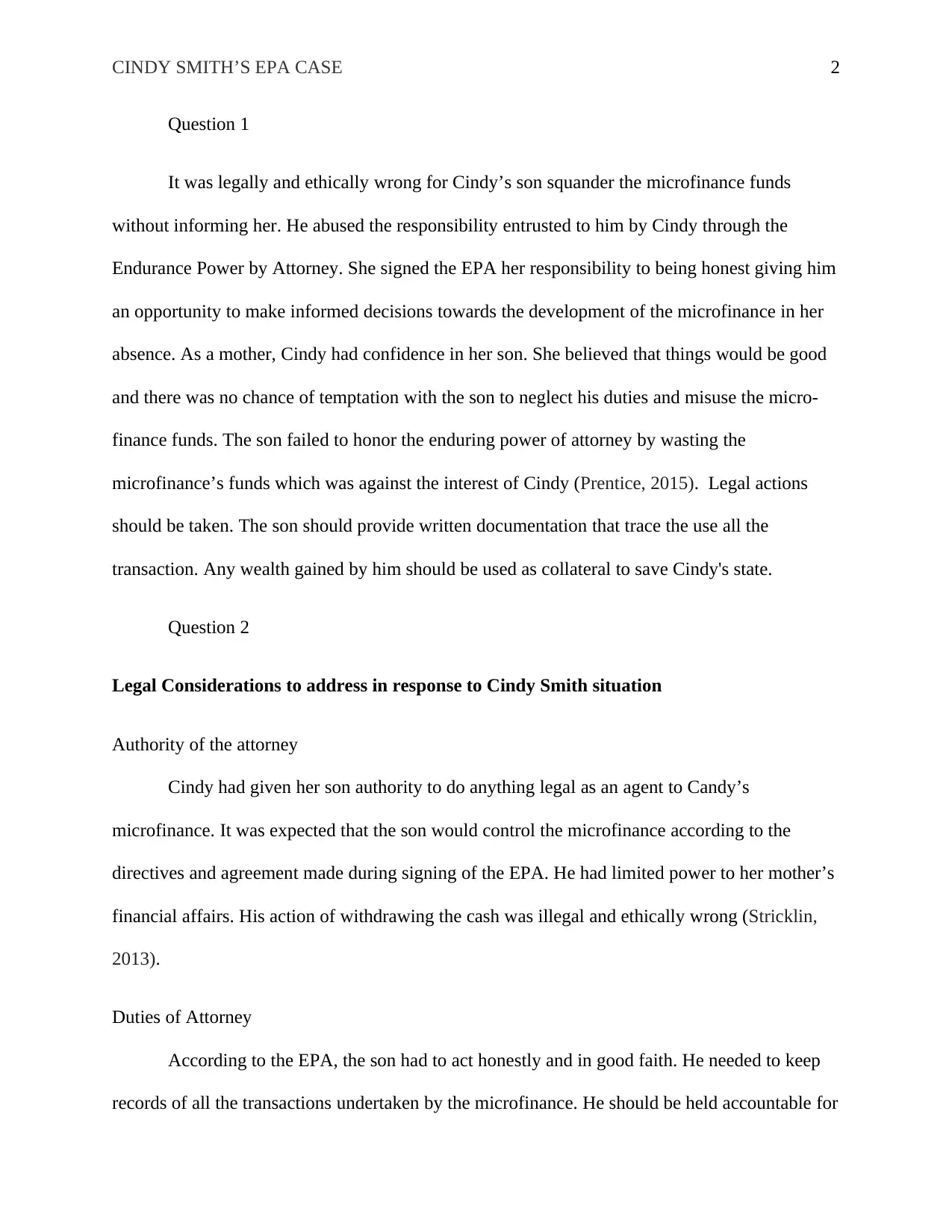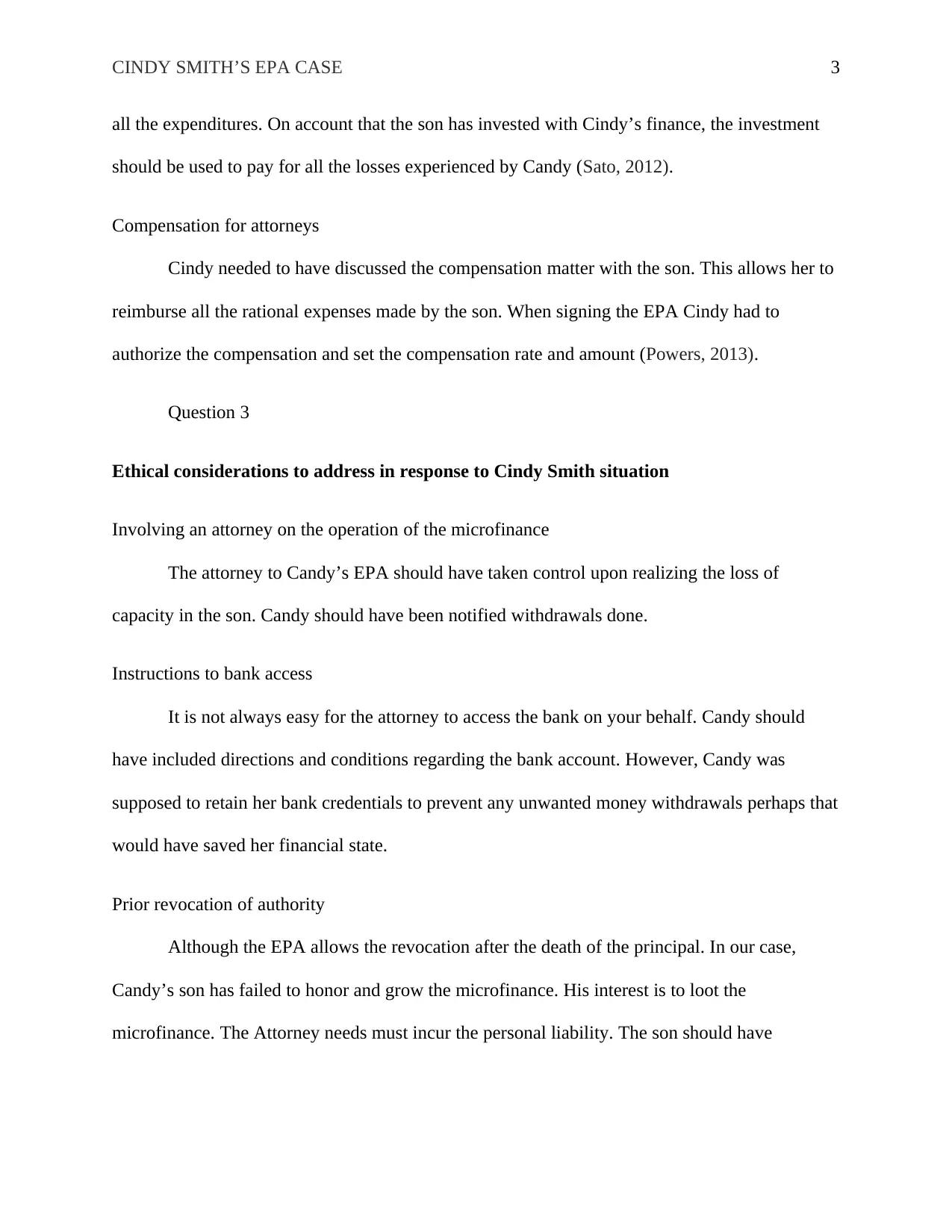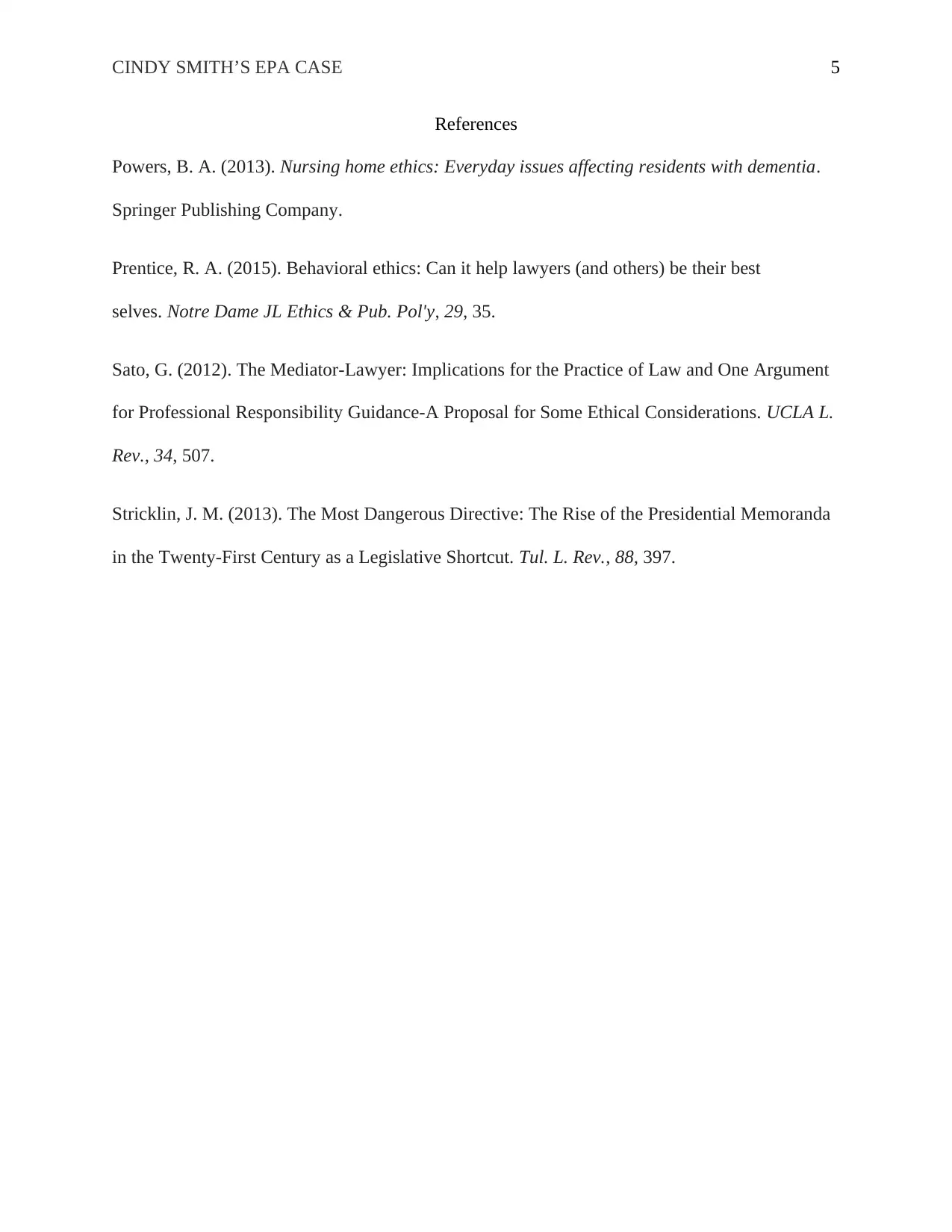Examining the Legal and Ethical Dimensions of Cindy Smith's EPA Case
VerifiedAdded on 2023/06/12
|6
|814
|222
Case Study
AI Summary
This case study analyzes the legal and ethical implications of Cindy Smith's situation, where her son misused the Enduring Power of Attorney (EPA) she granted him while she was hospitalized. The analysis addresses whether the son's actions of squandering microfinance funds were legally and ethically wrong, emphasizing his abuse of responsibility. It further considers the legal aspects, such as the authority and duties of the attorney under the EPA, and ethical considerations, including the involvement of an attorney in the microfinance's operation and instructions for bank access. The study also explores the importance of prior revocation of authority and expressing wishes for financial advice before major transactions. Ultimately, it highlights the son's failure to comply with EPA policies and his liability for the financial losses incurred, referencing relevant legal and ethical literature to support the analysis. Desklib provides access to this case study and many other solved assignments and resources to aid students in their studies.
1 out of 6











![[object Object]](/_next/static/media/star-bottom.7253800d.svg)